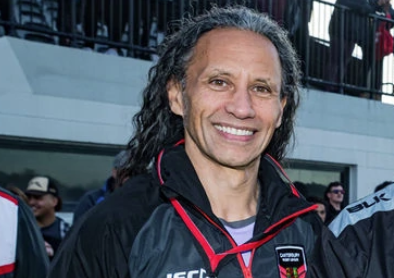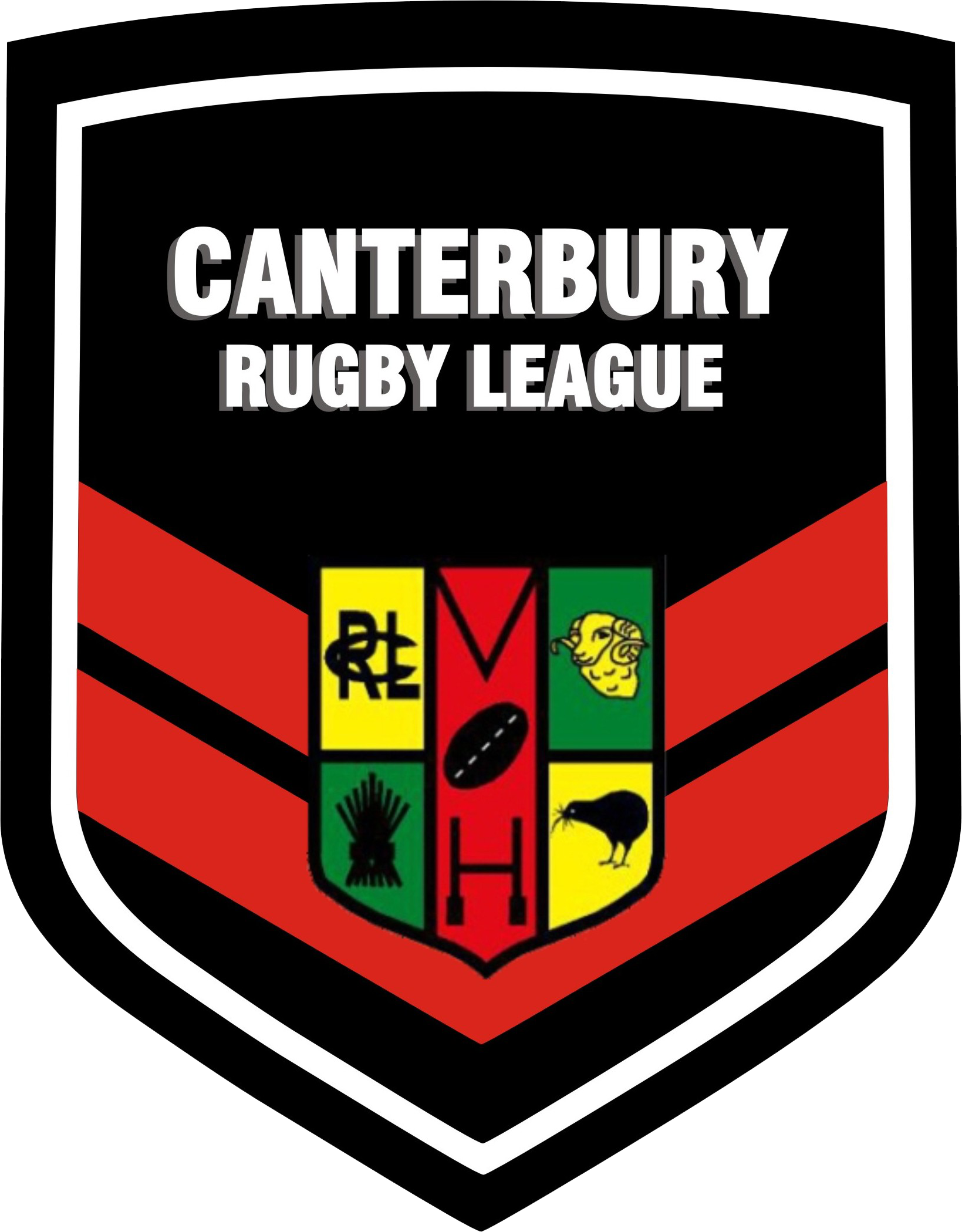CRL REFEREE PROFILE: DARYL MATAITI
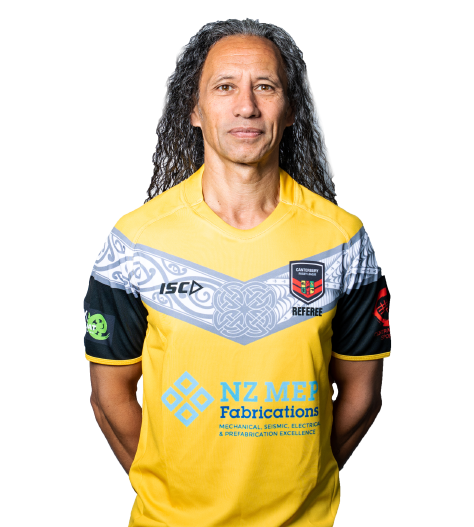 Every referee’s ‘how’ and ‘why’ they first came to pick up a whistle is different.
Every referee’s ‘how’ and ‘why’ they first came to pick up a whistle is different.
For Daryl Mataiti – who had hung up the playing boots several years earlier due to a knee injury – it was returning to the game as a volunteer in the junior space that has led to a long and fruitful tenure as a Canterbury Rugby League premiers referee.
“One of my sons started playing league, I was going to trainings and giving them a hand,” Mataiti recalls.
“The following year I did a bit of coaching, then about a year after that CRL sent out a message to the clubs looking for junior refs.
“It was about my third year of refereeing when I did my first senior games.”
Born in Wellington, Mataiti relocated to Christchurch with his mum, dad and sister as a two-year-old – “I consider myself a Cantabrian these days,” he says – and began playing for Shirley Hawks as a nine-year-old after moving into the area.
He played for the Hawks until the 13s, joined Papanui Tigers for three seasons (the Hawks didn’t have a 14s team at the time) and turned out for Shirley Boys’ High, and after a break of a few years returned to the Shirley club for three seasons in the senior grades before injury intervened.
After honing his refereeing craft in the lower grades, Mataiti was elevated to Massetti Cup duty in 2012. His debut in CRL’s top flight remains one of his most memorable matches.
“You always remember your first premiers game and for me it was the grand finalists from the previous year, so that was a little bit daunting – Celebration versus Halswell at Cuthberts Green,” Mataiti explains.
“I was pretty nervous. It didn’t go too bad, so that one stands out.
“I’ve also done a women’s championship final, it was good to be involved with that. I had a couple of 18s finals – the finals are the big ones. And I’ve run a few lines, for Jason Wilson for a New Zealand versus Australian Universities match, and at a couple of the national finals at NZRL junior tournaments.”
While he’s been a permanent fixture as the man in the middle of premiers matches for more than a decade, many local supporters will have memories of Mataiti haring down the touchline with flag in hand at a string of Pat Smith Trophy deciders in recent years.
“Last year’s grand final was pretty memorable in that it went down to the last play of the game to win it – it’s been pretty awesome to be involved as a touch judge in a few grand finals as well.”
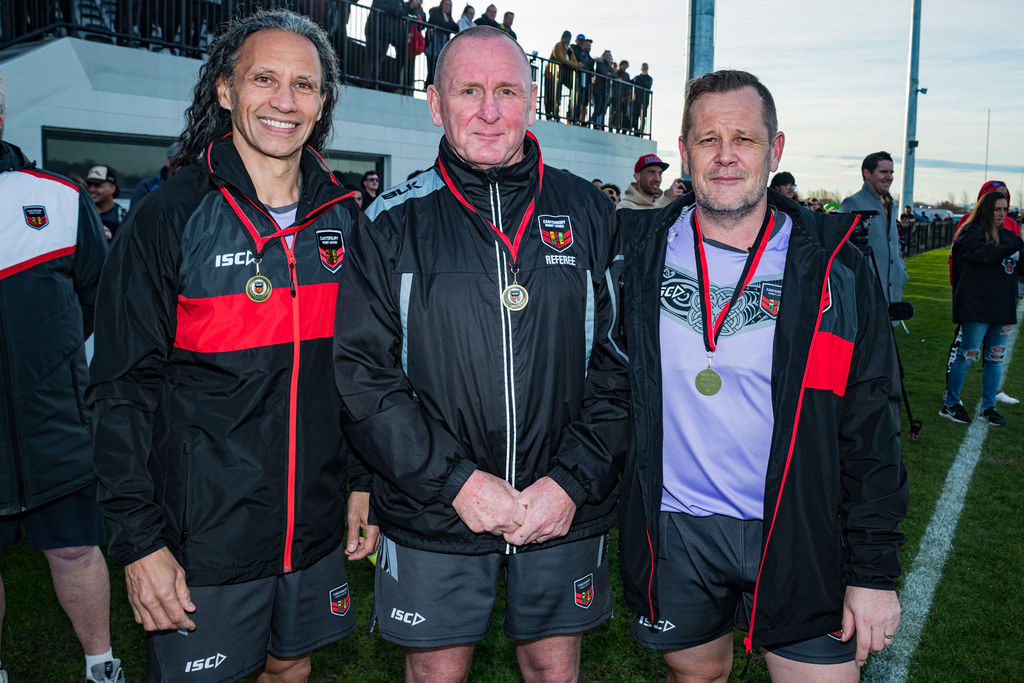
Referee Gary Smallridge (centre) with touch judges Daryl Mataiti (left) and Jason Wilson at the 2021 CRL Grand Final. Credit: Matty Louis Photography
Referees embark on a long learning curve before achieving those sort of appointments, however, and guidance and mentorship is a vital part of any whistle-blower’s progression
Mataiti singled out a couple of Canterbury’s most respected referees of the modern era as being especially helpful in showing him the ropes and accelerating his education as a match official.
“Steve Toms, he was a very good referee and he gave me a lot of support in those early years, all the way through.
“The rugby league community would say in the last 15 years Adam Burns would be the benchmark for refereeing, and he was also really valuable in guiding me and being someone to watch and aspire to.”
But every referee moulds their own style – though generally speaking, Mataiti says, there are two types: a referee’s referee and a player’s referee.
The genial, measured Mataiti is confident about which category he falls into.
“I suppose I’m more in the mould of a player’s referee in terms of I’m a bit more patient and tolerant with players than some referees are.
“I try to get more of a feel for the game than be pedantic about the rules. I consider myself a player’s referee rather than someone who’s too dogmatic on the rules.”
While an appeal from Canterbury Rugby League for junior refs was Mataiti’s sliding doors moment, remaining in the ranks for as long as he has requires plenty of motivation and dedication.
He speaks passionately about the reasons why he continues to head out into the Murphy Park, Wainoni Park, Linwood Park and Leslie Park cauldrons every Saturday.
“I actually enjoy being put under pressure,” he says.
“You’re right in the middle of things out there in those games and both teams are putting pressure on you, things are happening fast, at pace, you’re fatigued. I enjoy being in that environment and testing myself to see how well I can perform under those positions.
“Like players, sometimes you come off the field as a referee and think, ‘gee, I could’ve gone a bit better than that today’. There’s other times you come off and think, ‘man, I had a really good game today and there was a couple of really tough calls that I got right’.
“I think that’s a part of why I’m still involved – being a part of the game as much as possible at the highest level and challenging yourself.”
The more difficult aspects of officiating can be exacerbated by the level of scrutiny NRL referees come under from coaches, media and fans – and the level of dissection frame-by-frame coverage allows.
While the stakes might not be as high, it can be overlooked that grassroots referees don’t have the advantages those at the elite level do and other misconceptions can make things unnecessarily tough for our officials.
“There’s some different rules in the NRL to local footy and people aren’t always aware of those, so they’ll see something and think the referee or touch judge should make a particular call when that’s not the case,” Mataiti says.
“You see replays and multiple angles on TV, so there’s that expectation on Saturdays that the guys out in the middle and running the lines should be able to get every call spot on. The reality is you’re obstructed, or something happens and you’re not watching that particular part of the field.
“I feel there is that scrutiny. How many times do we see an NRL game with a wrong call, there’s a Captain’s Challenge, and the decision is overturned? It doesn’t always feel that forgiving of referees (for making an incorrect call) locally.”
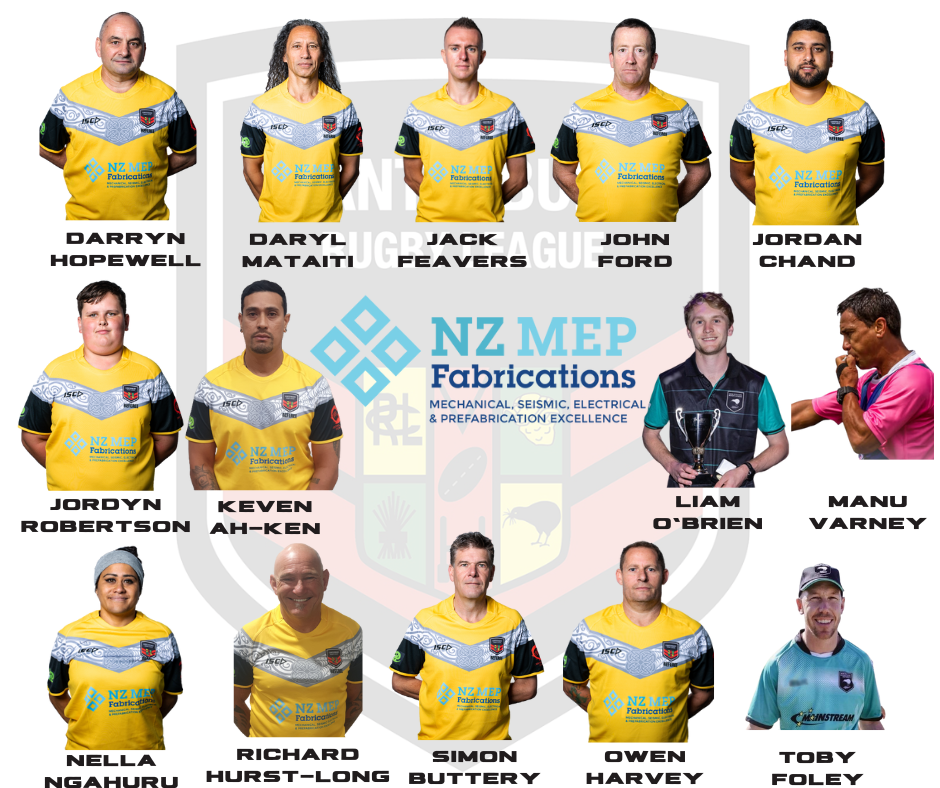
But in terms of respect from players, coaches and supporters in the Canterbury Rugby League sphere, Mataiti believes referees are treated better now than in the past.
He’s realistic about the contentious and competitive nature of sport – acknowledging there are times to show leeway when emotions bubble over – but it’s important our officials are protected.
“I’d have to say in the last three or four years, generally it has improved. If you go back further than that, five-plus years, there were quite a few incidents during a season where the ways referees and touch judges were abused was totally unacceptable.
“Referees do understand that in the heat of the moment, players and (people on the) sidelines will see something they really react to, but having said that there’s a line they shouldn’t cross.
“When there were quite a few incidents happening, they were dealt with properly – suspensions were handed out to supporters and players. I feel that filtered through so that players, coaches and supporters had a better awareness of what wasn’t acceptable.”
The bottom line is, in rugby league as with every code, that without referees, there is no game. And more officials – proudly supported in Canterbury by NZ MEP Fabrications in 2023 – are always needed.
Mataiti implores anyone thinking about dipping their toe into refereeing to give it a crack for an experience that is as rewarding as it is challenging.
“We’re always looking to build good support and training for people looking at refereeing. The set-up is good here, we have good support from NZRL, you’ll also have support from (fellow) referees and there’s a good community of refs who are here to guide each other, give tips.
“Refereeing means you’re still a really active part in the game. For players who don’t have the time to commit to playing, or perhaps are not as physically able as they were, when you’re refereeing you don’t get the same sort of injuries but you’re right in the middle of things and a big part of what is a really high-quality game.
“And there are pathways – some refs who are in Christchurch are part of doing NRL games and lines as well so there are opportunities available for referees who want to take it further.”
